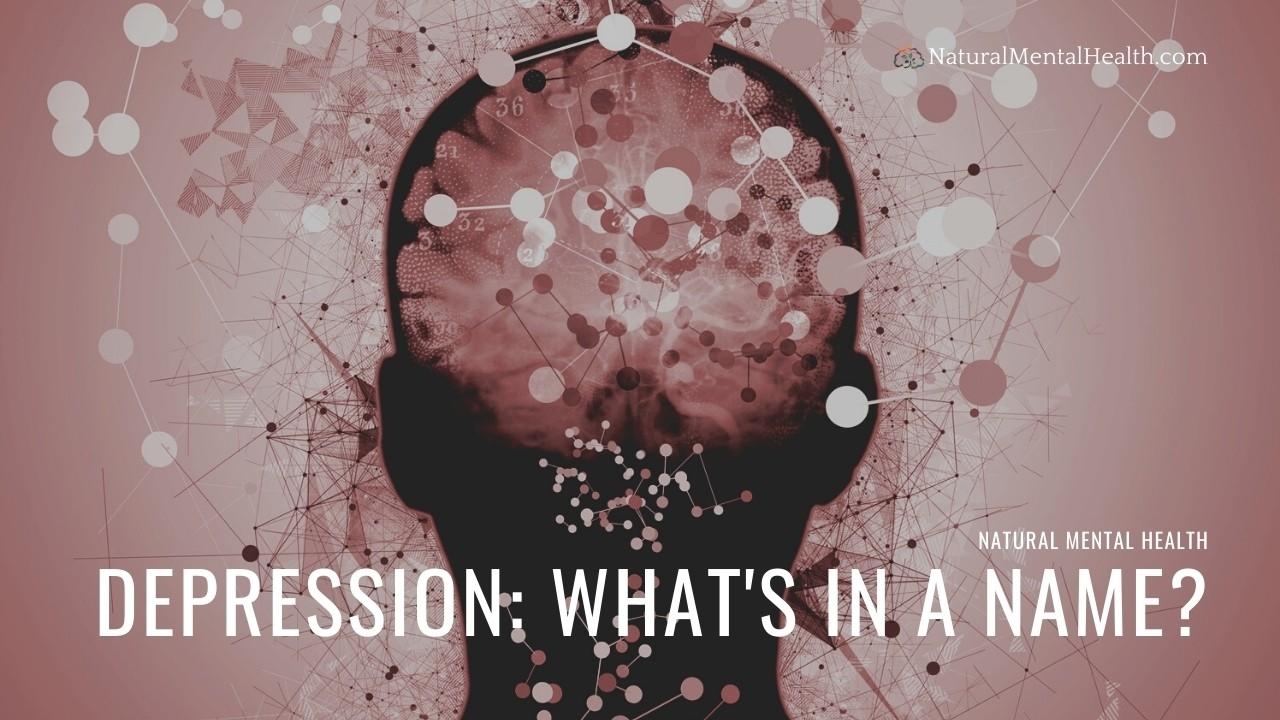
Depression: What’s In A Name?
Feb 19, 2024Henry Emmons, MD
Thoughts on Diagnoses
I’m a psychiatrist, but I’m not a big fan of psychiatric diagnoses. I know the DSM tries its best to be scientifically-based. We don’t have good blood tests or readily-accessible brain scans to aid in mental health diagnosis, so we are left with lists of symptoms which, in my view, falls pretty short of ideal. I don’t believe the DSM system has evolved much since the publication of the DSM-3 in 1980.
Back then, most psychiatric diagnosis was done by psychiatrists, and the DSM system helped get this information out to the broader health care system. Now diagnosis is mostly done by primary care physicians, psychologists, social workers, and other mental health professionals. There are two sources of influence that I believe have skewed our diagnoses such that more people become pathologized than in the past.
One is the insurance industry. Over the course of my professional life, I’ve seen first-hand how medical professionals have been driven by the need for a medical diagnosis in order to get reimbursed. I’m not saying this is wrong, but I do think it easily leads to over-diagnosis. I believe that far more people are labeled with major depression than really need to be.
The second influence is the well-meaning attempt to offer simple screening tools so that the diagnosis can be quickly made in a short office visit and people are less likely to fall through the cracks. The best example of this is the PHQ-9 which has 9 simple questions to screen for depression and can be done by the patient in a couple of minutes. If someone scores greater than 9, they are usually labelled with depression and offered treatment. What is that treatment? Usually medication.
There are several problems with this approach. One is that there are many things besides depression that can cause these same symptoms, but getting a quick and easy diagnosis often leaves other possible causes unexplored. The most common of these is stress, and I have come to believe that roughly 80% of people diagnosed today with depression actually have an adjustment (stress-related) disorder, not major depression. Antidepressants might help for a time. But it is a short-term fix. If they are not offered skills training to deal with their stress, depressive symptoms are likely to come back once meds are stopped. What is more tragic is when they are kept on meds for a long time (for what should be a short-term problem), and then they can’t get off of them. That becomes an even bigger problem when the meds poop out (professionally-speaking!), as they so often do.
Several questions on the PHQ-9, such as those asking about sleep, appetite or energy, are commonly affected by antidepressant medications themselves. It’s incredibly common for SSRIs, for example, to cause fatigue, increased appetite and sleep disturbance, but those are often interpreted as ongoing symptoms of depression. What’s the response to that? Usually more medication, and therefore more side effects.
I don’t have an immediate solution to the diagnosis problem, except that I think we can be a lot more judicious about making diagnoses for severe problems like major depression. Unless I believe it is an adjustment disorder, I often use the term “Depression NOS” (i.e. Not Otherwise Specified), because I’m more interested in what is the underlying cause and pattern of symptoms than I am in a DSM-5 or ICD-10 code.
Depression Types and the Natural Mental Health Approach
What I find more useful for depression is the pattern of three subtypes that we use at Natural Mental Health. In broad terms, depression shows up as mostly anxious, mostly agitated, or mostly sluggish. There is often some overlap, where people have symptoms from two or three of the subtypes, but still there tends to be a predominant pattern. Knowing that helps me decide what remedies to offer. Whether I’m starting with nutritional supplements, herbs or medications, I make the choice based on the subtype. I even find it to be a useful way of recommending the best diet, type of exercise or form of mind-body practice.
These subtypes also show up as some key obstacles within our Resilience Type Model. Our Resilience Types are focused on the strengths we all have when it comes to mental health and resilience. For more information on how to discover your Resilience Type, try the Resilience Quiz. After completing the quiz, you can get your free tailored mini-course, full of integrative practices and supplement ideas to help you reclaim your most resilient self. Let’s all take more care in making these psychiatric diagnoses, and try to see the health in our patients at least as much as we see the pathology.







